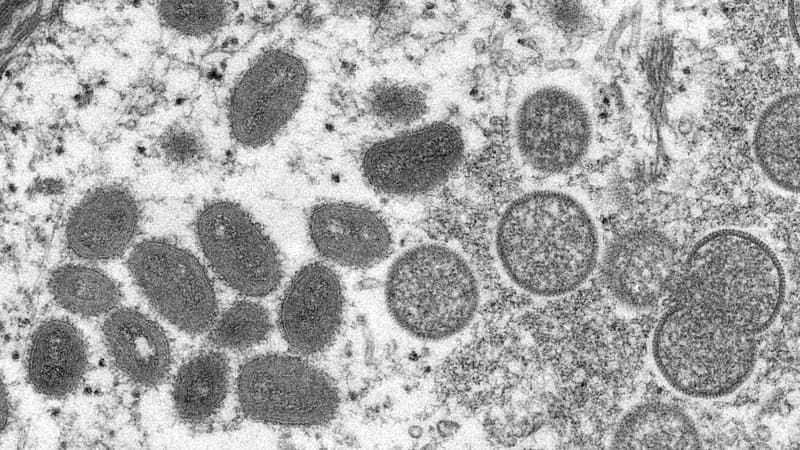The “most likely” scenario for monkeypox is the continuation of a “low-noise” epidemic, with a risk of resumption in the medium and long term, according to an opinion of the Monitoring Committee published this Monday and which recommends better preparing for it.
“The current epidemic is declining significantly,” but “it is still difficult” to assess the risks of a rebound or resurgence of monkeypox due to “a large number of unknowns,” says the Committee for Monitoring and Anticipation of Health Risks (Covars ) ), successor to the Scientific Council, chaired by the immunologist Brigitte Autran.
In France, some 4,100 cases of mpox have been registered so far, a new name for the disease (monkeypox, in English) announced Monday by the World Health Organization.
More than 130,000 vaccinations in France
In the short term, for those most exposed, mainly men who have homosexual relationships (MSM) with several partners, the scenario favored by the Covars is that the virus continues to circulate “quietly” but evolves towards elimination, if the virus continues. prevention and vaccination. .
“If behavior relaxes and vaccination coverage remains insufficient”, the committee does not rule out, however, a “rebound in the epidemic”.
As of November 17, some 132,750 vaccinations had been carried out in France, in a target population “estimated between 100,000 and 300,000 people, depending on the intensity of the risk.”
After a peak in late August, the vaccination rate fell sharply to stabilize at around 3,000 per week, mainly second shots, in early November.
Possible “seasonal” resumptions of the epidemic
In the medium and long term, Covars considers the elimination of mpox on an international scale “unlikely” and therefore considers “a risk of epidemic resumptions”, even “seasonal”, in France, even if the epidemic were controlled in the USA. country by then.
The degree of immunity, from contamination or vaccination, remains remarkably unknown.
“We must be very careful,” insisted modeler Simon Cauchemez, from the Institut Pasteur, during a Covars press conference.
The committee recommends “maintaining and strengthening efforts to achieve the elimination of ‘monkeypox’ virus infection within 3 months in the national territory and continue with these efforts to prevent the risk of future epidemic outbreaks.” . First of all through prevention, with the concerted action of the health authorities and associations with the communities most at risk, but also through vaccination.
Call to intensify research on diseases and vaccines
Considering “very difficult to maintain the risk reduction over time” by changing behaviour, Brigitte Autran insisted, during the press conference, on “complete, as quickly as possible, the vaccination of the eligible population”. “If we manage to vaccinate people most at risk, we can have a big impact on transmission,” said Simon Cauchemez.
Another line of recommendation: surveillance, particularly integrating monkeypox in the monitoring of sexually transmitted infections. “Rather than reinventing the wheel, the simplest and most effective thing is to include it in STI surveillance, for which there is a very good organization,” Brigitte Autran pleads. But this “should not lead to misunderstandings about other modes of transmission,” the Covars warn.
Last part of recommendations: research on the disease, the vaccine, the treatments, but also the day before in humans and animals. The committee recommends, among other things, adding mpox virus to the pathogens monitored in wildlife, domestic, and wild.
For the human population in general, the impact of the epidemic is considered “limited” in all scenarios, due to a low potential for transmission beyond the most exposed categories.
Source: BFM TV


